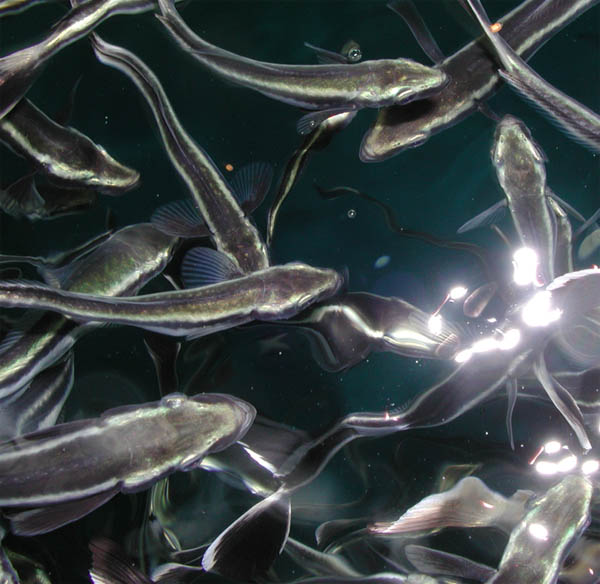I read the news today, oh boy. The finfish aquaculture world is singing the praises of researchers in Maryland who believe they have successfully manipulated the omnivorous cobia to create a captive vegetarian.
The study's results are being hailed as a win for aquaculture and conservation. But what of nutrition?
I'm no fan of most finfish aquaculture. It's not a protein I would choose because I prefer to keep my ingredients simple and as natural as possible. I do not dispute that it may have a place at the larger seafood table, but only inasmuch as the farms are clean and environmentally friendly.
The vegetarian cobia has a grain-based food supply (you guessed it — wheat, corn and soy!) that is, as of now, about 15 percent more expensive than the fishmeal alternative. The goal in the cobia's conversion was not necessarily to create a less expensive fish but to develop a product that eats less fish than it produces — hence, its praise as an environmental win.
I can't help but wonder how far off this beast is nutritionally from the Frankenfish, if only because its food is very likely to be genetically modified versions of wheat, corn and soy. I'm also wary of diet manipulation.
Grass-fed beef is purported to have the same Omega-3s as wild fish. How can that be, when beef is a notorious source of cholesterol? Well the answer is that grain-fed cattle does not eat a diet typical of that species. The grain-fed cow no doubt produces a delicious and mouthwateringly marbled steak. But that flavor and satisfaction comes at a price. (Though considerably lower than the $330,000 Stem-Cell Hamburger.)
Will we find out in 20 years that there is a similar downside to eating vegetarian cobia? I can't say for certain. But do I wonder enough to avoid the manipulated fish? Absolutely.
If there's one sure-fire way to eat fish with conservation in mind, it's to eat wild American seafood. Plucked from open waters, as nature intended. It also happens to be delicious.
Photo: Cobia fingerlings in captivity; NOAA







